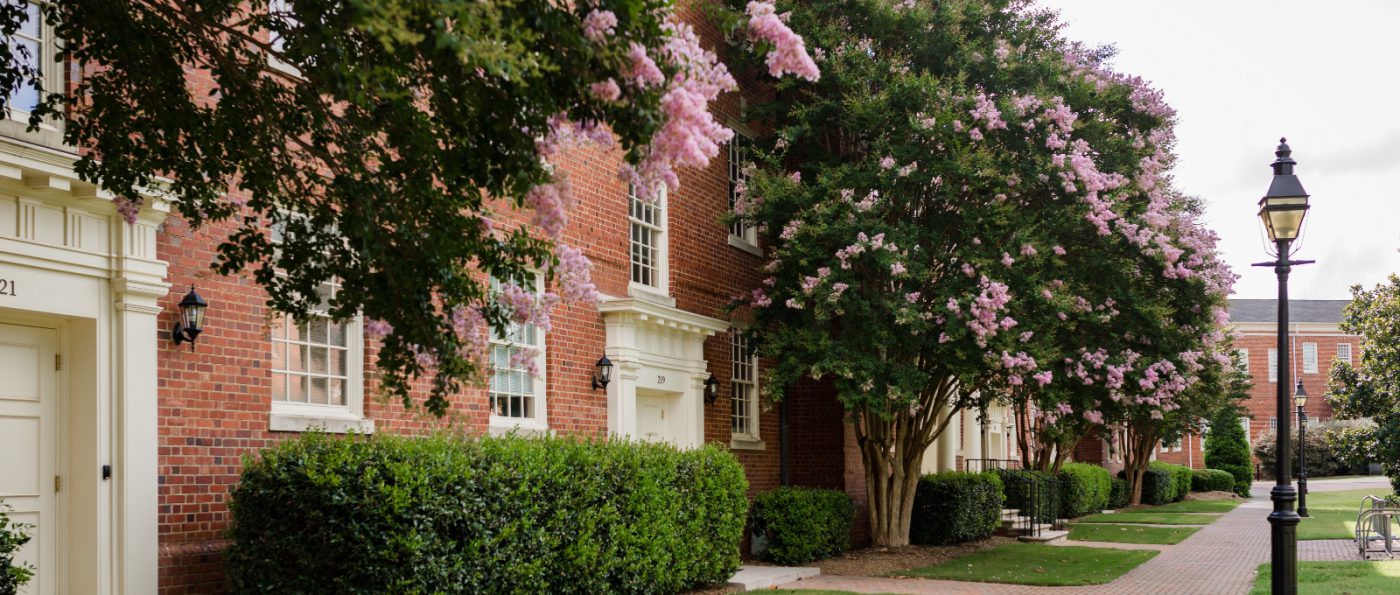The purpose of the program of studies leading to the degree, Master of Church Music, is to equip persons for the ministry of music, including the local church. The program is designed to be completed within a minimum of two academic years, beginning with a fall semester.
Admission Requirements
Based upon The Association of Theological Schools accrediting requirements, persons seeking admission to this program should (a) possess a baccalaureate degree approved by the National Association of Schools of Music or (b) meet the standards of the bachelor of music degree as prescribed by NASM. Students not possessing an undergraduate degree in music will qualify for admission into the program by completing the Church Music Diploma offered by The College at Southeastern. In further accordance with ATS accrediting requirements, Southeastern Seminary is required to administer placement exams of all graduate applicants to the M.C.M. program. If deficiencies are indicated, remedial work will be required without graduate credit.
Each entering M.C.M. student will be required to take placement exams in the following areas: Theory/Harmony, Sight Singing / Ear Training, Orchestration, Music History, Form and Analysis, and Conducting. Results from these tests will determine whether the student has demonstrated competence in these areas. If competence is not demonstrated on the placement exams within the first semester after admission, remedial courses in these areas must be taken for no graduate music credit. If Placement Exams indicate the need for remediation, the student must enroll in the remedial class during the first offering of the class after the Placement Exams.
Upon entrance into the program, the student will sing or play for the Music Faculty during the orientation period a piece of representative repertoire in his/her chosen performance skill area. An accompanist will be provided if necessary. This hearing is not an audition, per se. Rather, it is an opportunity to demonstrate one’s level of accomplishment and competency in his/her chosen skill area.
During this initial orientation period, students will also demonstrate undergraduate level piano proficiency (vocal and instrumental students) and undergraduate vocal proficiency (keyboard and instrumental students). If remediation is recommended for the above skills, Music Students are required to be enrolled in class voice and/or piano lab until undergraduate voice and piano proficiency is passed. Students not prepared to meet the keyboard proficiency requirements upon entrance to the program are required immediately to enroll in the credit-only course MUS 1534 Piano Class and remain enrolled in Piano Class until the proficiency requirement is met. Students may not register for secondary applied study until proficiencies are passed.
Degree Requirements
Students must complete 30 semester hours of Foundational Core studies, 22 semester hours of Church Music Core courses plus 12 semester hours of Church Music Specialization courses as prescribed, including 5-6 semester hours of free music electives. At the time of admission, the student’s proficiency in music will be evaluated by the faculty for the purpose of designing an individualized program of study. As a part of specialization, each MCM student will present a final project/recital.
Further information about the recital and proficiency requirements is available in the “Handbook for Music and Worship Studies” issued during orientation.
The M.C.M degree requires the completion of 64 semester hours of credit with an overall GPA of 2.0 or better. Not more than ten additional semester hours may be taken to make up a deficiency in quality points that are required for the M.C.M degree.
Candidates for the M.C.M. degree are required to consult with a Music Faculty member in planning their programs of study in order to accomplish the objective of the program within two years of full-time attendance and course work. In their final semester of study, M.C.M. students will have an exit interview conducted by the Music Faculty.
